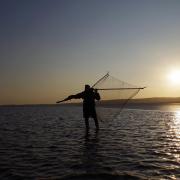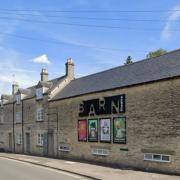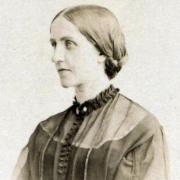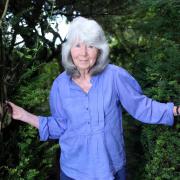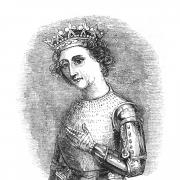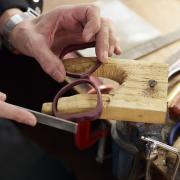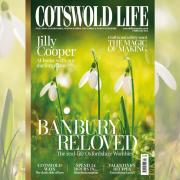On Saturday, June 30 an 'Olympic Flame' is to be planted in the Cotswold market town of Chipping Campden by Matthew Hall, the head gardener at Batsford Arboretum
On Saturday, June 30 an ‘Olympic Flame’ is to be planted in the Cotswold market town of Chipping Campden by Matthew Hall, the head gardener at Batsford Arboretum.
As you will probably already have gathered, this is not THE Olympic Flame – this Olympic Flame is a tree, a cultivar of the beautiful Mountain Ash and is being planted to commemorate the 400th anniversary of the Cotswold Olimpick Games (see information below) and the fact that the real Olympic Flame will be passing through Chipping Campden the very next day, Sunday, July 1.
The tree is being donated by nearby Batsford Arboretum, which houses one of the largest and most important tree collections in the UK, and will be planted by Batsford Head Gardener Matthew Hall at 3pm on the Chipping Campden Recreation Ground in the presence of the Mayor of Chipping Campden and the Mayor of Pont-D’Ouilly (the French town in Normandy that is twinned with Chipping Campden.)
Sorbus commixta ‘Olympic Flame’ – to give the tree its full name - is a lovely mountain ash, with unusually large, shiny green foliage that turns an impressive brilliant flame-red colour in the autumn. The tree has been cultivated from seed collected on the South Korean island of Ullungdo and was originally named ‘Dodong' - after the port on the island of Ullungdo – but it is now known and distributed as ‘Olympic Flame’.
Batsford Arboretum, Moreton in Marsh, Gloucestershire, GL56 9AB, is open daily from 9am-5pm. For visitor information telephone 01386 701441, Email arboretum@batsfordfoundation.co.uk or visit website www.batsarb.co.uk
THE COTSWOLD OLIMPICK GAMES
The Cotswold Olimpick Games is an annual public celebration of games and sports now held on the Friday after Spring Bank Holiday near Chipping Campden, in the Cotswolds of England. The Games probably began in 1612, and have continued on and off to the present day. They were started by a local lawyer, Robert Dover, with the approval of King James. Dover’s motivation in organising the Games may have been his belief that physical exercise was necessary for the defence of the realm, but he may also have been attempting to bring rich and poor together; the Games were attended by all classes of society, including on one occasion royalty.Events included horse-racing, coursing with hounds, running, jumping, dancing, sledgehammer throwing, fighting with swords and cudgels, quarterstaff, and wrestling. Booths and tents were erected in which games such as chess and cards were played for small stakes, and abundant food was supplied for everyone who attended. A temporary wooden structure, Dover Castle, was erected in a natural amphitheatre on what is now known as Dover's Hill, complete with small cannons that were fired to begin the events.The Games took place on the Thursday and Friday of the week of Whitsun, normally between the middle of May and the middle of June. Many 17th-century Puritans disapproved of such festivities, believing them to be of pagan origin, and they particularly disapproved of any celebration on a Sunday or a church holiday such as Whitsun. By the time of King James’s death in 1625, many Puritan landowners had forbidden their workers to attend such festivities; the increasing tensions between the supporters of the king and the Puritans resulted in the outbreak of the English Civil War in 1642, bringing the Games to an end.Revived after the Restoration of 1660, the Games gradually degenerated into a drunk and disorderly country festival according to their critics. The Games ended again in 1852, when the common land on which they had been staged was partitioned between local landowners and farmers and subsequently enclosed. Since 1966 the Games have been held each year on the Friday after Spring Bank Holiday. Events have included the tug of war, gymkhana, shin-kicking, dwile flonking, motor cycle scrambling, judo, piano smashing, and morris dancing. The British Olympic Association has recognised the Cotswold Olimpick Games as ‘the first stirrings of Britain’s Olympic beginnings’.



